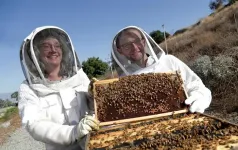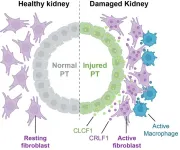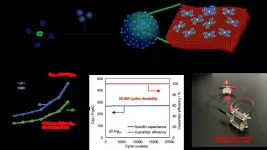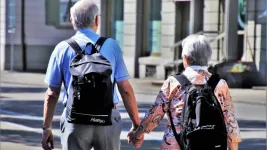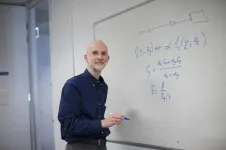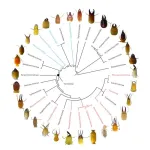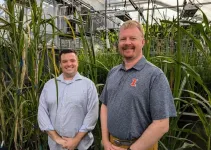Seeking the secrets to brain repair -- Trinity scientist wins European Research Council Starting Grant
2024-09-05
(Press-News.org)
Dr Michael-John Dolan has won a highly prestigious European Research Council (ERC) Starting Grants to pursue research aimed at uncovering the secrets of brain disorders and repair.
Dr Dolan’s project: MICRODISSECT: Dissection of Microglial State Biology in Brain Repair
Dr Dolan’s research will focus on microglia, the brain's resident immune cells, which can form distinct subtypes, or “states” – especially during brain damage, disease, or repair. While microglia are crucial for regulating neuroinflammation and brain repair, these states are poorly understood at present.
This project will fill this gap by using cutting-edge molecular and genomic tools to create a detailed map of how these states change over time. Building on this, the team will investigate the emergence and function of a microglial subtype that interacts with the peripheral immune system, and finally, develop methods to control and inactivate any microglial state to reveal the neurobiological function of these poorly understood subtypes.
The team will focus on brain repair as a model system, with the ultimate goal of harnessing microglial states to rejuvenate and arrest neuropathology. Because microglia have been implicated in many neurological and neurodevelopmental disorders including Alzheimer’s disease and Multiple Sclerosis, the datasets, tools and insights will be broadly applicable to the study of brain disorders.
Dr Dolan, Assistant Professor in Trinity’s School of Genetics and Microbiology, said: “I am thrilled to be an ERC awardee and grateful to all my mentors and trainees for their support, in addition to Trinity’s fantastic Research Development Office. This award comes at a pivotal time for me, having just moved back to Ireland to start my group. This ERC grant will be the platform on which my lab will build and enable us to strike out in an ambitious new direction in neuroimmunology.”
ERC Starting Grants draw funding from the EU’s Horizon Europe programme to enable excellent scientists, with up to seven years of post-PhD experience, to pursue their most promising ideas. The funds also enable recipients to significantly grow their research teams over the five-year duration of the projects they support.
END
[Attachments] See images for this press release:

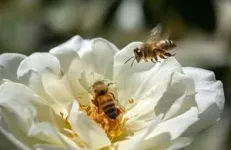
ELSE PRESS RELEASES FROM THIS DATE:
2024-09-05
If you upset one bee, what determines whether the entire hive decides to avenge her grievance? A $1.2 million grant will support UC Riverside scientists in answering questions like these about how honeybees communicate.
Every third bite of food you eat has been pollinated by a bee. They are central to worldwide food production, but there have been an alarming number of die-offs recorded since 2006. One solution to this issue is the use of special survivor bees that are more resistant to pests and diseases that are killing managed honeybees.
Commonly found in ...
2024-09-05
“We are extremely happy about the freshly granted ERC project for Hannah Schneider. Thereby, the European Research Agency distinguished a highly talented young researcher, who develops new ideas and approaches to explore anatomical roots traits that are highly relevant for stress tolerance and resource efficiency of crops”, says Prof. Dr. Nicolaus von Wirén, Managing Director at IPK. “The new ERC project of the scientist from Minnesota, whom we allured to IPK just last October, follows the two previous ERC-Starting Grant holders Martin Mascher and Stefan Heckmann and will bring great international visibility to root research at IPK.”
“The ...
2024-09-05
A study published in Nature Communications provides new insight into how damaged cells interact within disease-promoting microenvironments following acute kidney injury, or AKI. With limited treatment options, AKI frequently progresses to chronic kidney disease (CKD), which affects more than 1 in 7 U.S. adults—an estimated 37 million people.
The new findings may contribute to future efforts to prevent CKD, which can lead to kidney failure.
The study brought together scientists from Andy McMahon’s lab at USC and Long Cai’s lab at Caltech, with support from a USC Broad Innovation Award that funded the cross-institutional research collaboration.
In ...
2024-09-05
Honesty is the best policy… most of the time. Social norms help humans understand when we need to tell the truth and when we shouldn’t, to spare someone’s feelings or avoid harm. But how do these norms apply to robots, which are increasingly working with humans? To understand whether humans can accept robots telling lies, scientists asked almost 500 participants to rate and justify different types of robot deception.
“I wanted to explore an understudied facet of robot ethics, to contribute to our understanding of mistrust ...
2024-09-05
Researchers at Tohoku University have successfully increased the capacity, lifetime durability, and cost-effectiveness of a capacitor in their pursuit of a more power-efficient future. A capacitor is a device used as part of a circuit that can store and release energy, just like a battery. What makes a capacitor different from a battery is that it takes much less time to charge. For example, your cellphone battery will power your phone instantly, but charging that battery back up to 100% when it dies is far from instantaneous.
While this makes capacitors sound like the superior choice, they have some big drawbacks that need to be overcome. Firstly, their capacity is much smaller ...
2024-09-05
New research has discovered a unique and promising avenue for diagnosing Alzheimer’s disease (AD) earlier – by analysing AD biomarkers in blood – so that the impacts of dementia can be reduced.
AD is the most common form of dementia, estimated to contribute to 60-70 per cent of cases, or more than 33 million cases worldwide, according to the World Health Organisation. Currently incurable, AD is usually diagnosed when a person is having significant difficulties with memory and thinking that impact their daily life.
University of Melbourne researcher Dr Brandon Mahan leads a group of analytical geochemists from the Faculty ...
2024-09-05
WEHI’s Bioinformatics division head, Professor Gordon Smyth, has won the 2024 Eureka Prize for Excellence in Research Software.
The award recognises Prof Smyth’s lead role in developing and designing the limma software package, which helps researchers detect changes in gene activity.
limma has helped researchers around the world detect changes in gene activity – a crucial element to finding new treatments for a range of diseases, like cancer – and has been used or cited in more than 70,000 published papers worldwide.
The Australian Museum Eureka Prizes are ...
2024-09-05
Termites have a bad reputation. Most think of them as pests, a status that isn’t helped by their recent reclassification into the cockroach family.
But not only do the termites that cause serious problems for humans only make up 3.5% of all termite species, termites also serve as crucial ecosystem engineers, maintaining the infrastructure of various environments. Like earthworms, they circulate nutrients by decomposing plant materials, and they play the important role of bioturbators: much like plowing a field, termites aerate the soil, expose underground nutrients, and let water infiltrate deeper layers of soil – ...
2024-09-05
Drought stress has long been a limiting factor for crop production around the world, a challenge exacerbated by climate change.
For more than a century, scientists have targeted a key plant trait known as water use efficiency (WUE) to help crops grow with less water and avoid suffering from drought stress. Greater WUE can help plants avoid drought stress — but for most crops it’s also associated with lower productivity when water is plentiful.
In a pair of new studies published in the Journal of Experimental Botany, ...
2024-09-05
Learning new languages, sending emails, attending a virtual class, or speaking to loved ones halfway around the world are just some of the tasks accomplished by touching a button on a smartphone. Unfortunately, the ease and convenience of modern devices have also come with a painful crick in the neck. The sedentary nature of work and prolonged use of hand-held devices and computers have contributed to a sharp increase in neck pain.
While fatigue in neck muscles has long been suspected of causing pain, the actual mechanical changes in the spine and muscles that precede weakness remain an outstanding question.
Now, using high-precision X-ray ...
LAST 30 PRESS RELEASES:
[Press-News.org] Seeking the secrets to brain repair -- Trinity scientist wins European Research Council Starting Grant


